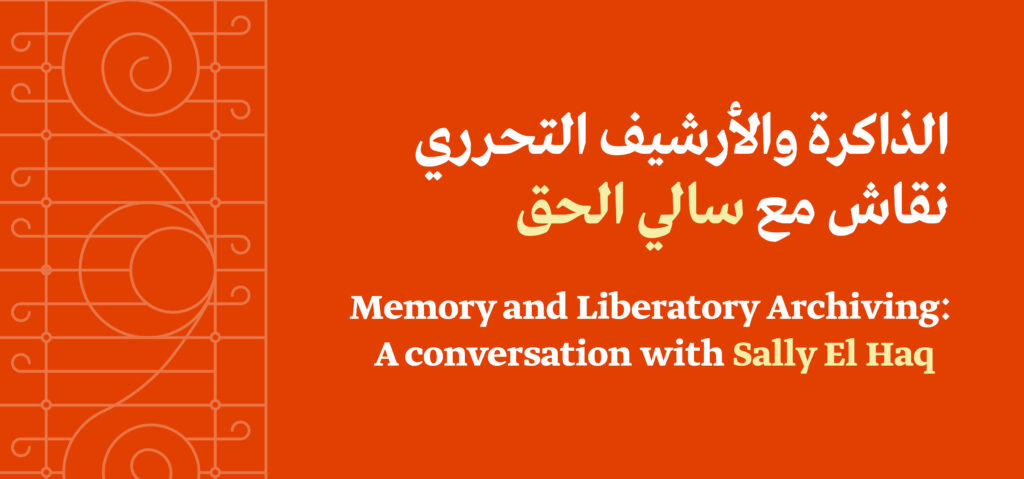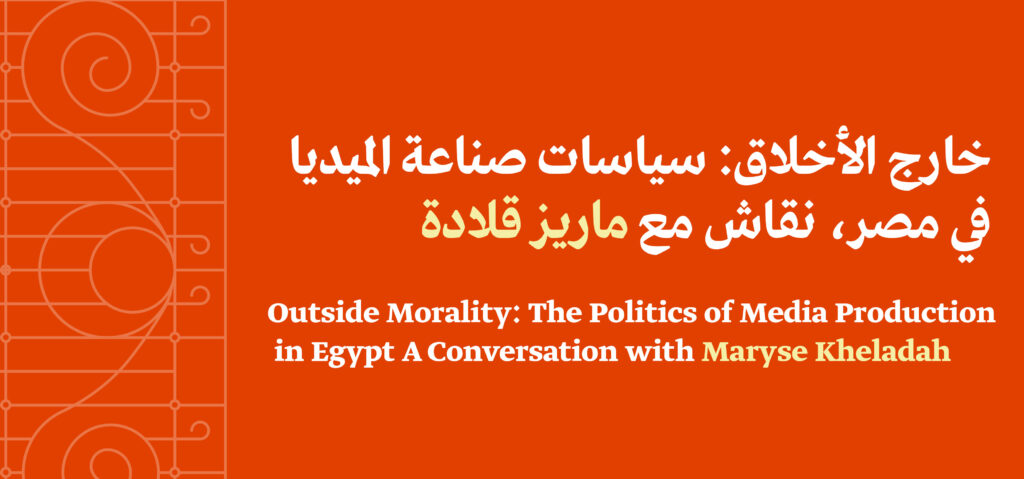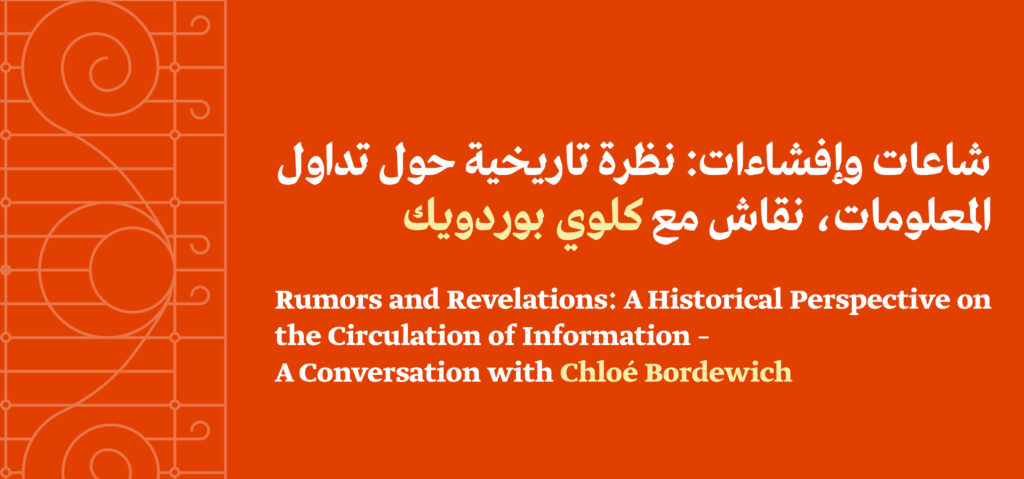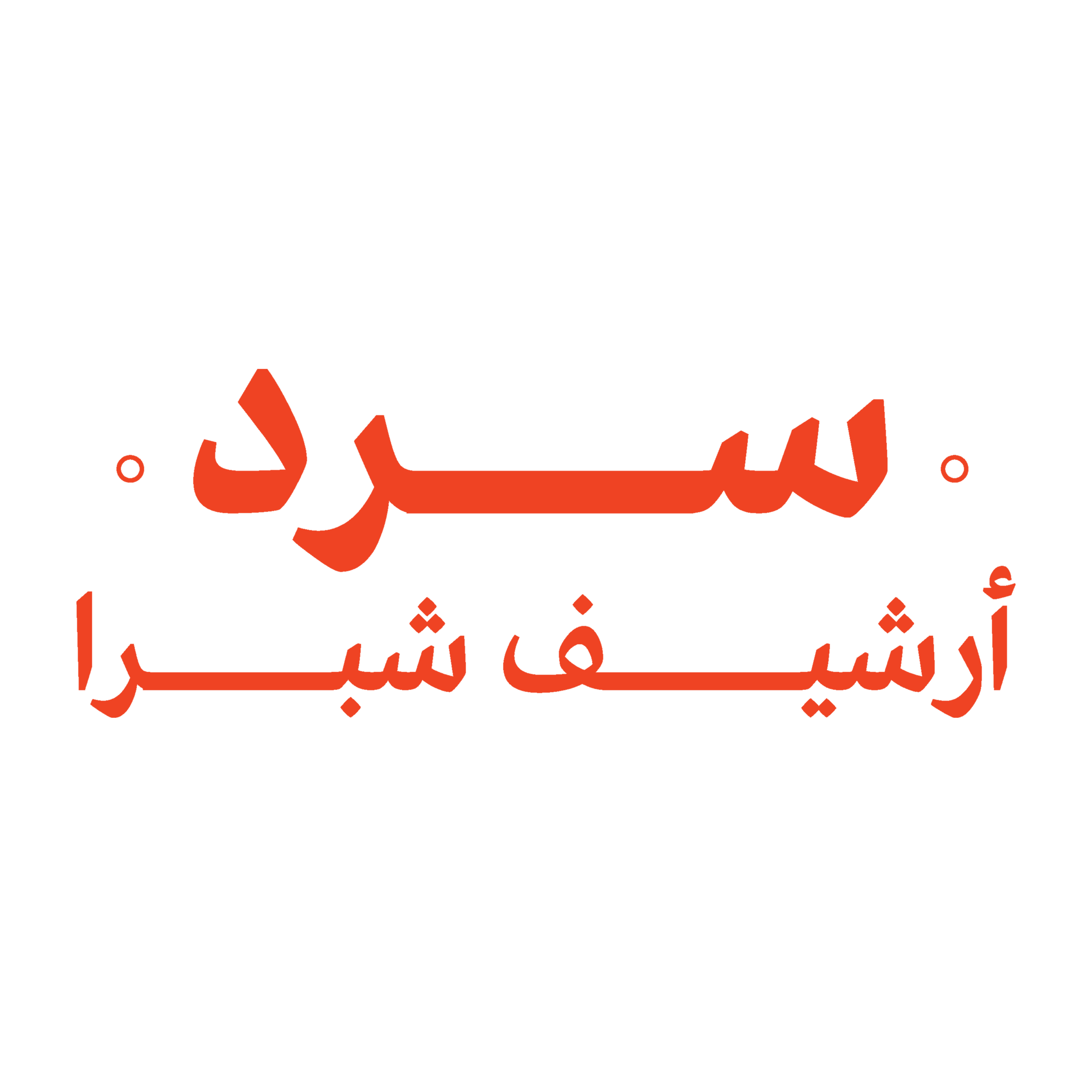“Park 10” Encounters are monthly public discussions with specialists in the social sciences and humanities, aimed at creating spaces and intersections—through the Arabic language—between academic knowledge and everyday life. These encounters are part of Shubra Archive’s mission to open new channels of engagement with residents of local neighborhoods during the development of written, audio, and visual research outputs. Often, these communities play a central—yet marginalized—role in knowledge production, whether directly or indirectly, and the series seeks to highlight and center their contributions.

What does a fragmented collective memory mean? And what produces our state of ‘unknowing’?
In this session, Sally El-Haq offered critical perspectives on archival studies, particularly on the discourse surrounding “liberatory archives.” Through the discussion, she revealed the urgency and intimacy of building community archives that are capable of disrupting the colonial frameworks that often underpin knowledge production. The conversation also centered on the experience of the campaign Whose Knowledge? and its approach to liberatory archives and memory—offered as a call to strengthen community-led practices, while reflecting on our work both in Egypt and globally.
Sally El-Haq is a writer and feminist educator. She teaches gender in contemporary Egypt at the Netherlands-Flemish Institute in Cairo (NVIC) and is a co-founder of the African feminist collective Ikhtyar (2013–2022). Her understanding of liberatory archives and memory is shaped by her work with Whose Knowledge?, a global campaign that centers the knowledge of marginalized communities. Through her engagement with archives, Sally hopes to contribute to the creation of collective and digital memories that resist erasure.

In academic and public discourse alike, there is often an intense preoccupation with the political influence of media—especially cinema and television—on culture, society, values, and morality. Most of these analyses tend to focus on the final media product as it appears on screen. But in order for these products to reach audiences and wield influence, the conditions of their production must be made invisible—the backstage must remain unseen.
This raises a crucial question: What might the internal processes and infrastructures of media production reveal? And could such insights challenge dominant understandings of media politics?
In this talk, anthropologist Maryse Kheladah shares her engagement with these questions, drawing on two years of ethnographic fieldwork with media workers in Egypt between 2019 and 2021. By focusing on the concept of “akl el-‘eish” (literally “livelihood,” but also meaning “making a living”) and exploring the intersections and contradictions between the recent history of the media technicians’ union and the longer legacy of artistic syndicates, the talk reconsiders the potential for political action outside the moral binary of “right” and “wrong.”
Kheladah introduces the notion of “outside morality”—a space that is neither moral nor immoral—as a lens for taking seriously the contradictions and dualities imposed on individuals and collectives by neoliberal economies. The lived experiences of media workers, their historical entanglements with the state, the industry, and global economic structures reveal an alternative domain that demands a redefinition of media politics and highlights the pragmatic possibilities of solidarity and justice.
Maryse Kheladah is an anthropologist and cultural worker. She is currently a postdoctoral fellow at the Forum Transregionale Studien (EUME) in Berlin, Germany. She holds a PhD in Anthropology and an MA in Media from Brown University (USA), as well as an MA in Sociology-Anthropology from the American University in Cairo. Her research focuses on labor economies and politics in the cultural and creative sectors across Egypt and the Middle East. Since 2010, she has worked in Cairo’s cultural field in various capacities—from project management and research to film production—and is a co-founder of Q.L., a research and advocacy collective focused on improving working environments and labor conditions in Egypt’s cultural sector.

In this session, historian Chloé Bordewich explores the relationship between information and historical narratives through two incidents from Egyptian history that are eighty years apart. The first is the conflict between the Egyptian and Ethiopian empires in the mid-1870s, and the second is the widespread story of “corrupt weapons” used to explain the Arab defeat in the 1948 Palestine War. In both cases, the resulting shock led to significant political change: the ‘Urabi Revolt in the former, and the fall of the monarchy in the latter.
During this period—before, during, and after British occupation—media, the state, and the public underwent dramatic transformations in how information was gathered and disseminated. From rumors to leaks, and from telegraphs to magazines, the public actively participated in shaping the information landscape through various tools and practices.
This discussion offers an opportunity to reflect on the role of participatory archiving in shaping today’s information landscape. It also considers how a more complex understanding of the circulation—and non-circulation—of information can help us produce more accurate and less hegemonic historical narratives.
Dr. Chloé Bordewich is a fellow at the Jackman Humanities Institute at the University of Toronto. Her research focuses on the politics of historical narrative in modern Egypt and Southeast Asia. She received her PhD in History and Middle Eastern Studies from Harvard University in 2022 and completed a Public History Fellowship at Boston University (2022–2023), where she collaborated with the U.S. National Archives Museum. She also participated in the Center for Arabic Study Abroad (CASA) at the American University in Cairo from 2012 to 2013. She is the founder of the “Little Syria Project” in Boston—a documentation initiative that traces the history of the first Arabic-speaking immigrant community in the city, in collaboration with their descendants.
